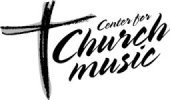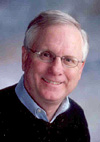Center For Church Music, Songs & Hymns

Recent articles
- Kids Choir Camp 2012: A Soldier of the Cross!
- Kids Choir Camp 2011
- Billy's Questions: Session 1
- How I Can Help
- The Song of the Cross
Great Hymns of the Faith CDs
Categories
- Church Musicians
- The Weight of Glory
- Be Prepared
- Singing Hymns
- Singing Lessons
- John Wesley on Singing
- Singing: A Call to Excellence
- Lay People
- Billy's Questions
- C.S. Lewis on Worship
- Kids Choir Camp
- A Song of Christmas
- Singing Hymns
- Knowing Christ
- Christmas Eve Truce
- Pastors
- Music
- Church Musician
- Worship
Our Author

Music & Worship
Billy's Questions: Session 1
Billy: What exactly is a hymn?
Adoration Songbook: While this is a very good question, it can require either a long or short answer. We'll stick with a (fairly) short answer today. Essentially a hymn is a song of adoration to God meant to be sung in the church. Historically, it's a Greek word that goes back to at least the 8th century BC. The Greeks used it to describe the songs they sang to their gods. In the Bible, we see it first used in Matthew 26:30 and Mark 14:26 as Jesus and His disciples "sing a hymn" just before He goes to the Garden of Gethsemane. The other two times the word "hymn" appears in the New Testament is in Ephesians 5:19 and Colossians 3:16. St. Paul couples "hymns" with "psalms and spiritual songs." In these passages, St. Paul declares that singing "psalms, hymns and spiritual songs" is the consequence of being "filled with the Spirit." Does that help?
Billy: Yes and no. The historical information is interesting, but I still don't understand exactly what you mean by hymns. Does the congregation only sing hymns? And what about many of the songs that I hear on Christian radio?
AS: The short answer is yes; hymns were (and are) written to be sung by the congregation. Many of the songs heard on Christian radio are songs of experience and are intended for a performance by a single performer, or sometimes a group of singers. They do contain some biblical truth, but of a simple nature. Since they are patterned after popular songs in the secular musical field, "feeling" and the creation of an emotional response is critical to the success of these songs. Sometimes, these songs (or choruses) are so popular that they end up being sung by the congregation. But, they would not be called hymns.
Billy: OK, then hymns are for everybody in the church.
AS: Right. That's why we believe hymns are so important. They are for everyone regardless of "talent". Hymns are meant to communicate substantial, biblical truth to the entire church. Let me quickly say, though, that not all hymns do this, but in general it's a fair description.
Billy: That explains, then, the fact that I've heard that hymns tend to be "theological". Right?
AS: Yes. While not always meant as instruments of theology, hymns are an excellent tool for teaching about God, Christianity and the Bible. In the New Testament, scholars tell us that a few of St. Paul's writings, for example, are thought to be 'hymn fragments' from the Early Church. But as you might have noticed, hymns do not usually contain literal passages from Scripture. They are, however, saturated with biblical truth, often as a result of a profound spiritual experience. In addition, because of their poetic structure and length, there is a greater opportunity to construct an organized pattern that fully develops the intent of the hymn writer. Also, you might be interested in knowing that paraphrases of the Psalms, (sometimes referred to as metrical Psalms) are also found in most hymnals. In fact, Psalm 46 inspired Martin Luther's well-known hymn, "A Mighty Fortress". Why don't you check out that hymn and then read Psalm 46? It's a great way to begin the day!
Billy: So the most important difference between a hymn and a popular Christian song is that the hymn has stronger theological content, right?
AS: Correct. One final note, Billy. It is critical to note that the musical structure of a traditional hymn is also significant--much more than you might think. Briefly, a hymn has its roots in classical music where melody, rhythm and harmony are integrated into a musical whole. While many hymns are not musically profound, the unity of their melody, rhythm and harmony create a form that enhances the ability of the congregation to sing either melody or parts (soprano, alto, tenor, bass) creating a stronger musical and poetic composition. In other words, and this is terribly important, the musical foundation of a hymn allows the brain to better absorb theological truth than perhaps in any other way. Making the singing of a great hymn a daily activity will strengthen your intellect and refine your emotions.
